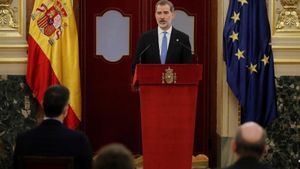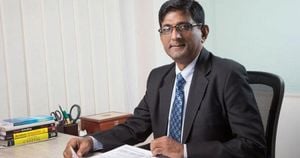Switzerland has officially assumed the presidency of the Human Rights Council, with pressing global issues underscoring the complexity of its leadership role. The Swiss Permanent Representative to the UN, Ambassador Jürg Lauber, will lead discussions at the 58th session, with Foreign Minister Ignazio Cassis delivering the opening address.
This leadership arises at a time when the post-World War II multilateral system faces unprecedented challenges. Tensions over the conflict in Ukraine, the situation in Palestine, and the humanitarian crises in Afghanistan highlight the delicate balance Switzerland must strike. Commentators observe the fluidity of geopolitical alliances as key players like Russia remain outside of the council, and the United States reduces its commitment to international budgets, potentially hampering the council's effectiveness.
Switzerland's dual commitment to human rights internationally runs parallel to its domestic political discussions, particularly concerning the treatment of dual citizens. Recently, parliamentary discussions have surfaced around whether dual citizens should be obligated to serve the Swiss military. Currently, dual nationals are exempt from compulsory military service if they have completed equivalent service abroad, which has been the case for many Swiss individuals holding citizenship from nations with less extensive military obligations, like France.
Swiss MP Pascal Schmid, representing the Swiss People's Party (SVP), has proposed legislation to impose military obligations on dual citizens whose foreign military service does not align with Swiss standards. He emphasized, "Bi-nationals have a clear advantage," arguing the current regulations have left the Swiss army under-staffed by nearly 5,000 recruits due to exemptions granted to dual nationals.
Support for Schmid's motion is echoed by fellow MPs like Patrick Hässig of the Green Liberal Party, who sees it as necessary for equal treatment. MPs like Martin Candinas of The Centre argue it's offensive for dual citizens to easily exempt themselves from military service. Candinas stated, "Dual citizenship is desired and has advantages, but also disadvantages. You can't just want to benefit from the advantages." This reflects the growing sentiment within several segments of parliament to reconsider military obligations as they pertain to dual citizens.
Yet, dissent exists within the parliamentary discourse. Green MP Balthasar Glättli argues against the need for such legislation, stating, "The army is currently not dependent on the 'lost' recruits," effectively positing there isn't significant harm caused by current exemptions. This critique suggests some believe the motion does not address any pressing issue within the Swiss military structure.
The deliberation process is set to culminate with parliamentary votes across both chambers. Should the motion pass, it will proceed to voters for a mandatory referendum, allowing all Swiss citizens, including dual nationals, to express their views on the proposed military service requirements.
This intersection of international responsibility and domestic policy reflects the balancing act Switzerland faces as it holds the Human Rights Council presidency. Navigated through this dual lens, leaders like Ambassador Jürg Lauber and Minister Ignazio Cassis are tasked with upholding human rights standards globally, all the whilst managing contentious domestic concerns such as military service obligations for dual citizens.
Switzerland’s presidency occurs amid volatile times, beckoning the country to fortify its traditional role as a mediator, advocating for human rights, all under the scrutiny of current global tensions. With many pressing matters on the global agenda, the strategies employed during Switzerland's leadership will be pivotal, especially as the challenge of aligning military obligations resonates at home and complements their international ethos of promoting human rights.



